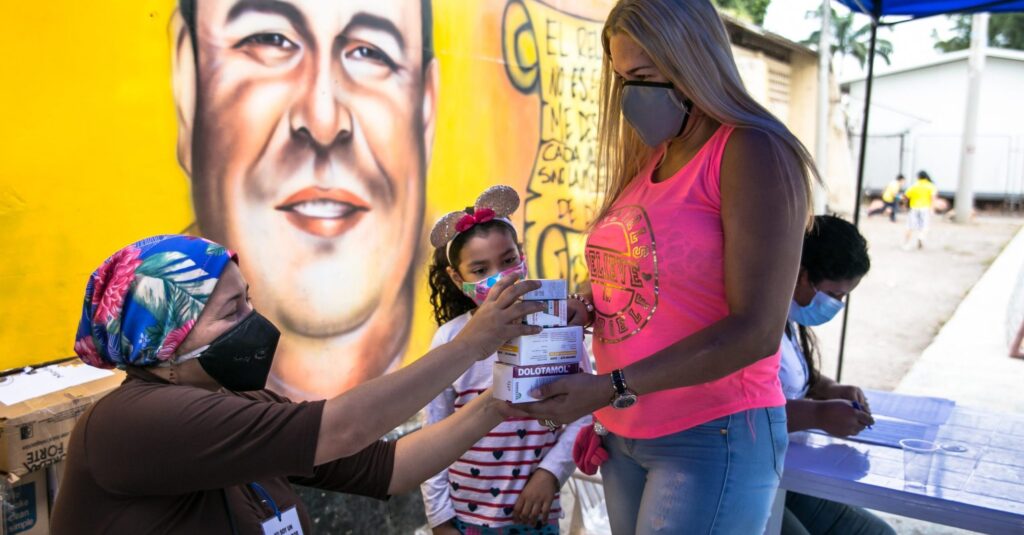Updates & Press
COVID-19 Featured | November 9, 2020
Addressing COVID-19’s Gendered Health Impact
Author | MedGlobalComms

By Andrew Moran, Policy and Advocacy Intern at MedGlobal
The ongoing health and economic crises caused by COVID-19 are greatly impacting the lives of billions of people across the world. However, the burden imposed by the far-reaching and disastrous effects of the pandemic is not shared equally. Women and gender minorities in every country are disproportionately affected by the economic downturns, lockdowns, and healthcare system failures that have characterized the pandemic. Globally, 70% of all health workers are women. As they respond to the health crisis, it is vital that their health and well-being is not overlooked or marginalized.
In many countries, especially those experiencing conflict and other crises, women already faced formal and informal barriers to accessing healthcare. Entrenched gender norms, restrictions on travel, lack of control over decision making, and poverty are all contributing factors that are worsening due to the pandemic. At the same time, disease outbreaks, combined with already limited resources in crisis settings, can lead to the diversion of funding and services away from routine healthcare for women. During the COVID-19 pandemic, the health crisis for women has been compounded by the failure of many governments to classify sexual and reproductive health care as essential. As a result, in April, the UN Population Fund estimated that COVID-19 lockdowns and reductions in health services could lead to 7 million unintended pregnancies as more than 47 million women lose access to contraceptives.
As part of achieving MedGlobal’s mission to end healthcare disparity around the world, we work to provide direct healthcare to women and all people, including general health needs; a variety of maternal health needs, including prenatal and postnatal care; and a range of reproductive health and family planning services. For instance, in Colombia, where local health systems have struggled to deal with the mass influx of Venezuelan migrants and outbreaks of COVID-19, MedGlobal runs a primary care clinic that specifically focuses on providing maternal and reproductive health care to Venezuelan migrants and refugees. In Venezuela, as a consequence of the country’s economic crisis, the healthcare system has crumbled from shortages of funding and supplies. As the situation in Venezuela worsened, there was a 30% increase in infant mortality and a 65% percent increase in maternal mortality, making maternal healthcare particularly critical for Venezuelan women fleeing the country. The clinic MedGlobal supports in Cúcuta, on the Colombian side of the border, provides prenatal care and check-ups for pregnant patients, hundreds of “mother and baby” kits to women in their third trimester, and family planning services – including a range of long-acting reversible contraceptives such as IUDs and implants, in partnership with UNFPA.
In the countries where MedGlobal works, we have also conducted train-of-trainer sessions for Helping Babies Breathe, a program which teaches doctors, nurses, and midwives a critical technique for resuscitation of newborn babies, and is shown to reduce neonatal mortality. Not only have hundreds of local healthcare workers received this vital training, but they have also gained the skills to share life-saving skills with other health workers. Early in 2020, our Helping Babies Breathe Train the Trainers program in Pakistan started with just a team of 5 MedGlobal trainers, who led trainings for midwives and health workers on this important resuscitation technique. Now, after less than nine months, 171 health workers in Pakistan have been trained in this technique.
MedGlobal additionally provides training in the use of point-of-care ultrasounds (POCUS), which when paired with MedGlobal’s donations of portable ultrasound devices, enables the rapid diagnosis of a wide variety of medical conditions. This is particularly essential for pregnancies; ultrasounds allow health workers to identify needs for prenatal care and thereby help reduce the risk of infant and maternal mortality.
The COVID-19 pandemic is having a disproportionate impact on women, girls, and gender minorities, and highlighting existing health disparities. There needs to be a substantial and sustained effort by the international community to both address the gendered impact of this health crisis and center the needs of those most affected in the overall health response.


